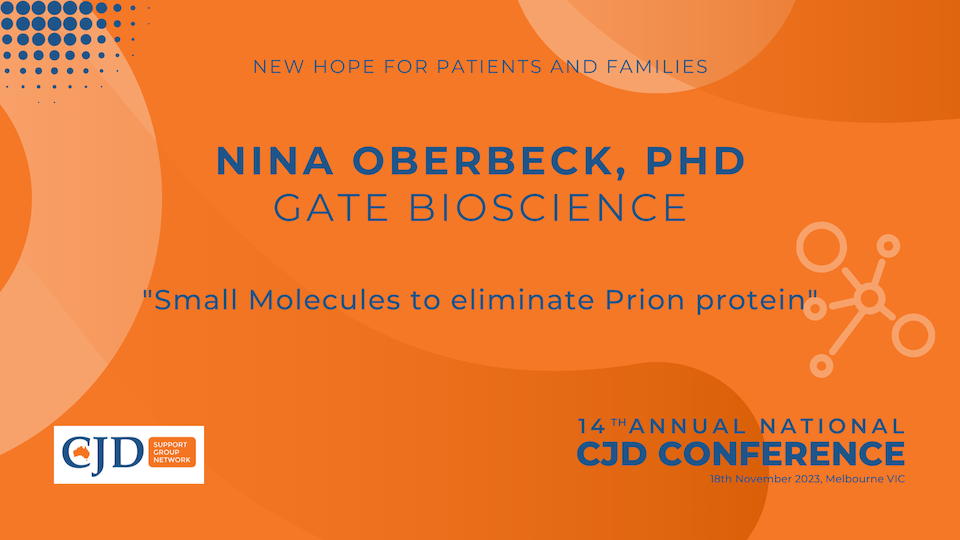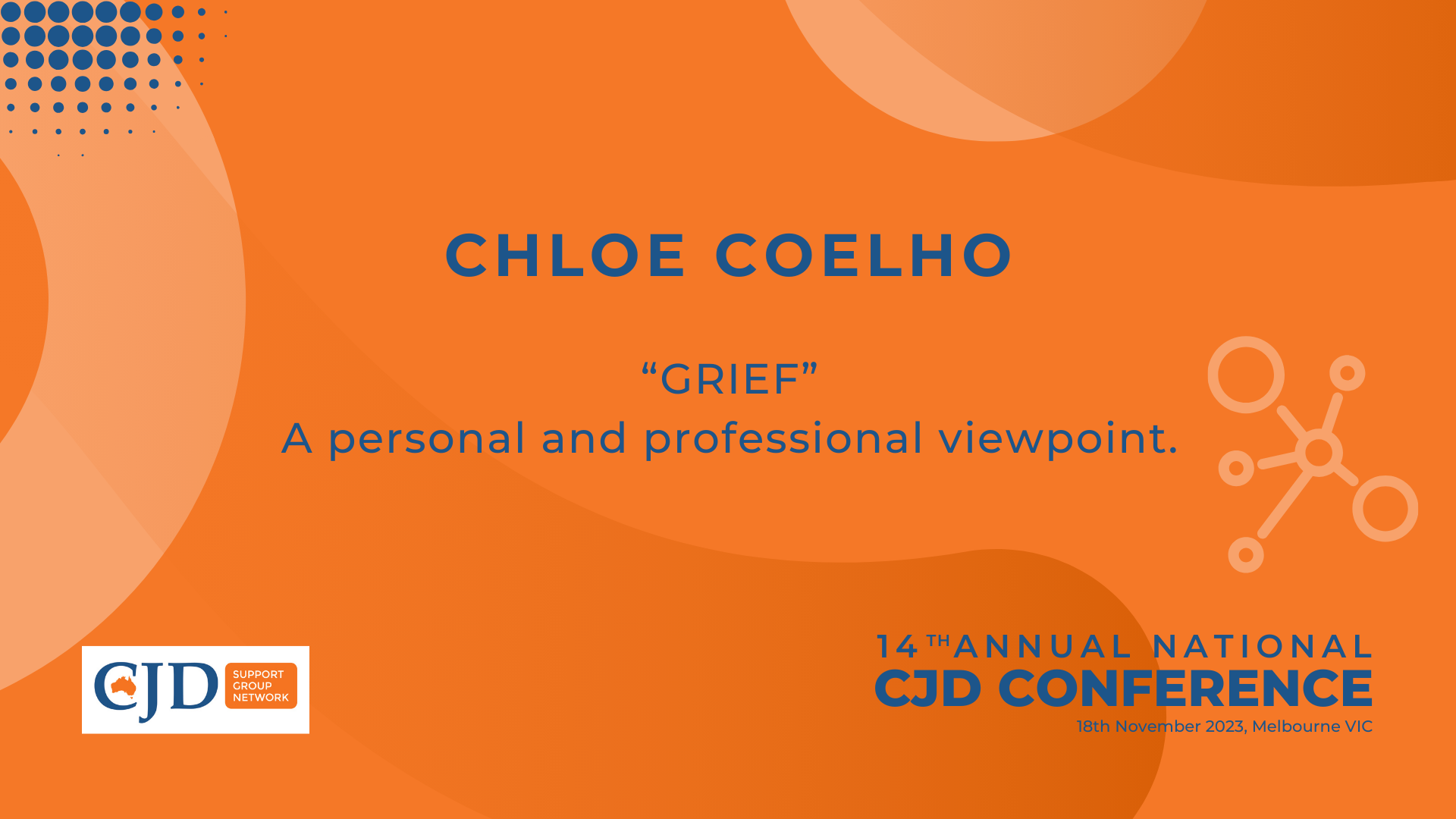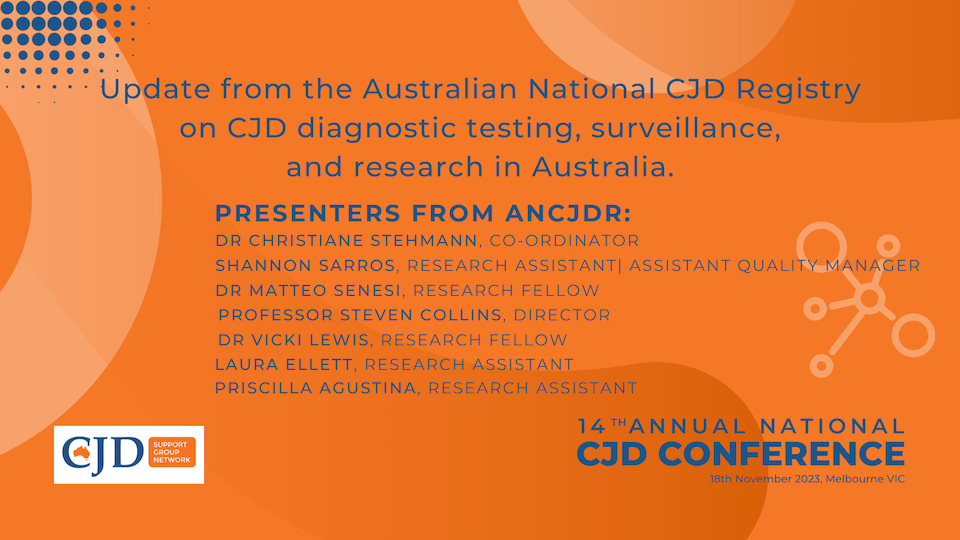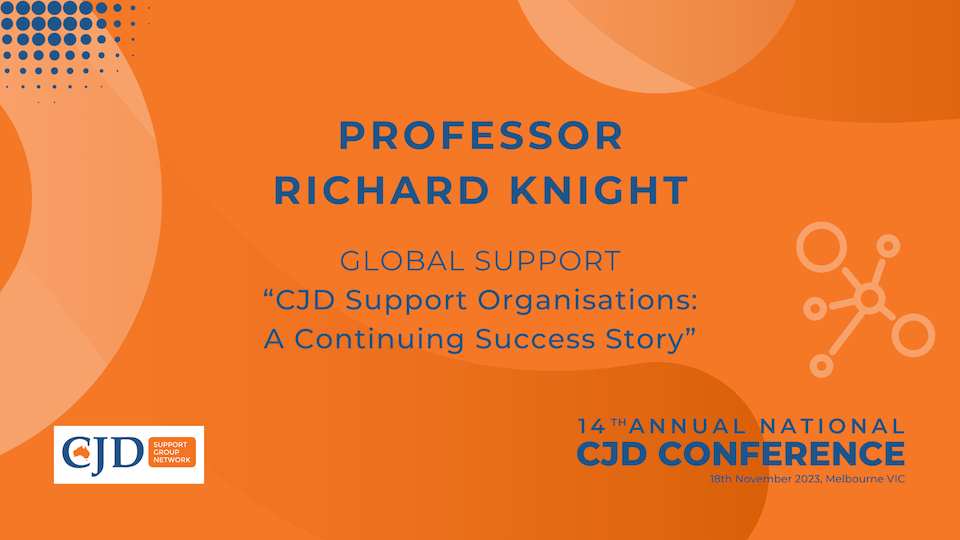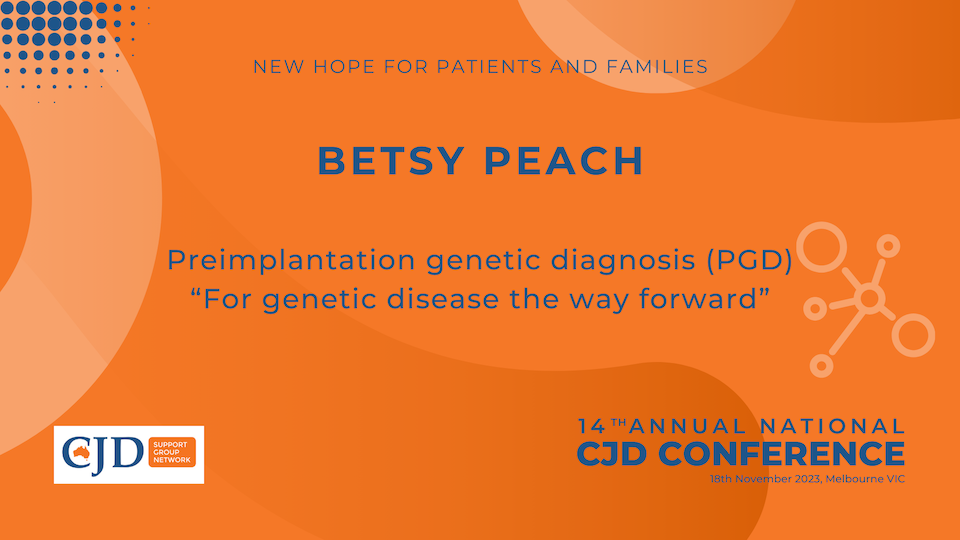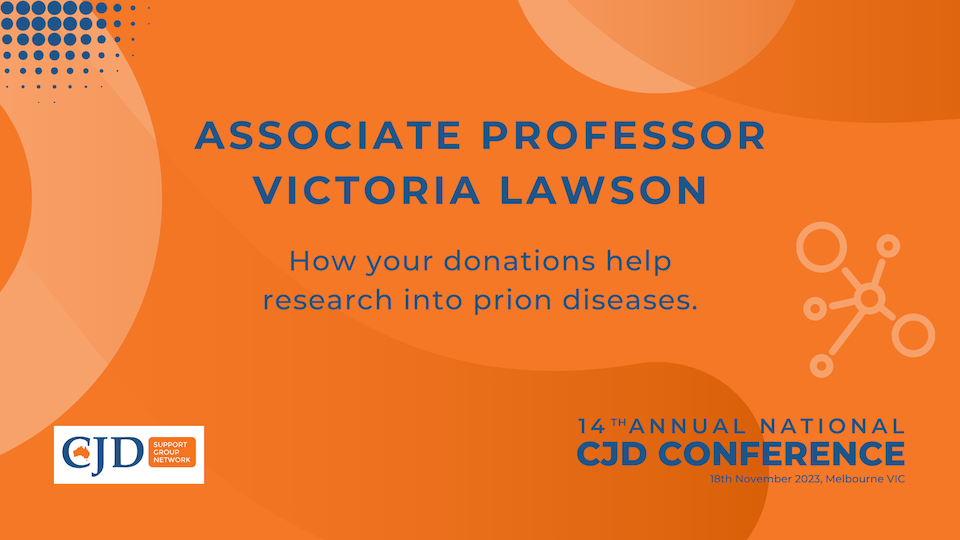2023 CJD Conference Presentations
Conference Program
Speaker Bios

Professor Richard Knight
Professor Richard Knight received his BA degree in Philosophy, Politics and Economics at Oxford University in 1972, his medical degree in 1977, his postgraduate medical qualification in 1980 and became a Fellow of the Royal College of Physicians of Edinburgh in 1993.
Professor Knight is presently serving as Director of the UK National CJD Surveillance Unit and has a Personal Chair in Clinical Neurology at the University of Edinburgh with an Honorary Consultant Clinical Neurology post in the Department of Clinical Neurosciences, Western General Hospital, Edinburgh, Scotland.
Professor Knight spends approximately 50% of his time divided between CJD Surveillance and research and 50% devoted to clinical services and teaching. He has authored and co-authored many CJD related papers related to sporadic, variant, genetic and iatrogenic forms of the illness.
Professor Knight also has a long involvement with CJD lay and charity organisations, currently being Chair of the UK National CJD Support Network Management Committee and an invited member of Friends and Advisors Group to the CJD International Support Alliance.
This is Professor Knights sixth trip to Australia to present at an annual CJD Support Group Network conference, he regularly attends the CJD Foundation Family Conference in Washington DC and has also presented and assisted with the family conference organised by the Associazione Italiana Encefalopatie da Prioni (A.I.En.P) in Italy as well as his involvement with the CJD Support network annual family meetings in UK.

Professor Colin Masters
Colin Masters is a Professor of Dementia Research at The Florey, University of Melbourne and a consultant at the Royal Melbourne Hospital. Colin Masters has focused his career on research in Alzheimer’s disease and other neurodegenerative diseases, including Creutzfeldt-Jakob disease.
Over the last 40 years, his work is widely acknowledged as having had a major influence on Alzheimer’s disease research worldwide, particularly the collaborative studies conducted with Konrad Beyreuther in which they discovered the proteolytic neuronal origin of the A? amyloid protein, which causes Alzheimer’s disease. This work has led to the continued development of diagnostics and therapeutic strategies and has been recognised by the receipt of many international awards.
More recently, he has focused on describing the natural history of Alzheimer’s disease as a necessary preparatory step for disease-modifying therapies.
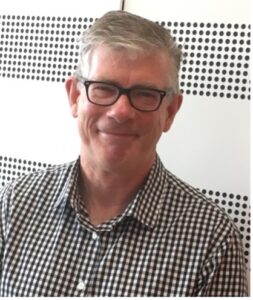
Professor Steven Collins
Steven Collins is a neurologist-scientist who is Director of the Australian National Creutzfeldt-Jakob Disease Registry (ANCJDR), as well as Professor/Senior Principal Research Fellow in the Department of Medicine, the University of Melbourne and Clinical Lead, Dementia Mission and Member, Clinical Governance Committee, The Florey. He was a National Health & Medical Research Council Practitioner Fellow 2006-2020. Professor Collins is also appointed to the Department of Clinical Neurosciences and Neurological Research, St Vincent’s Hospital, Melbourne, where he heads the Mitochondrial & Autoimmune Neurological Disorders diagnostic laboratory, a NATA accredited, national referral service.
After graduating from the Faculty of Medicine, the University of Melbourne, in 1982, he undertook clinical neurological training in Melbourne and Adelaide before undertaking post-graduate research studies in mitochondrial diseases, followed by post-doctoral fellowships in clinical neurology at the Mayo Clinic (Sandoz Prize), Rochester Minnesota USA and electromyography at the University of Western Ontario, London, Ontario, Canada.
The ANCJDR is the national referral service for diagnostic testing of prion diseases and in 2014 this and Alzheimer Disease CSF biomarker testing were subsumed under the NATA accredited National Dementia Diagnostics Laboratory, of which Professor Collins is Director. Through the ANCJDR Professor Collins undertakes both epidemiological and basic scientific research into prion diseases involving supervision of post-doctoral fellows and PhD students.
In 2008 Professor Collins became a member of the Friends and Advisory group of the CJD International Support Alliance and in 2009 he took on the role as Medical Director of the CJD Support Group Network assisting the network to support CJD families in Australia.
In addition, Professor Collins undertakes translational research into Alzheimer’s disease, as well as participates as principal investigator in Alzheimer’s disease clinical trials. In 2023, Professor Collins was awarded an AO in the Australia Day King’s Honours for his contributions to the field of prion diseases.
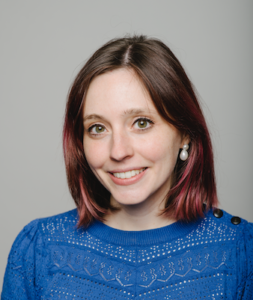
Dr Nina Oberbeck
Nina Oberbeck is Director of Preclinical Translation at Gate Bioscience, where she leads Gate’s programs and portfolio strategy. Prior to Gate, Nina worked at Maze Therapeutics in small molecule drug discovery. Nina completed her postdoctoral training at Genentech and holds a Ph.D. from the MRC Laboratory of Molecular Biology, University of Cambridge. She has published several first-author papers in high-impact journals, including Nature. In her spare time, she enjoys off-the-beaten-path travel, discovering new cultures and cuisines, and reading literary fiction.
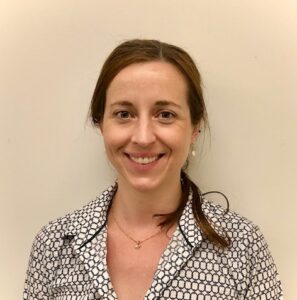
Dr Debra Scott
After completing a Science Degree at Macquarie University and then an MBBS through Sydney University, Debra obtained dual specialty qualifications –completing a fellowship in both General Practice (FRACGP) and in Palliative Care (FAChPM). She has always had a keen interest in neurology and neuropharmacology throughout her undergraduate degrees.
While a GP registrar, she cared for a patient with CJD from initial symptoms through to end-of-life care in the community and since 2020 has been the patient and palliative care advisor to the CJDSGN.
In 2023, she became the executive medical officer to the CJDSGN Australia; as well as a member of the friends and advisory group to the CJDISA. She is eager to continue to support education and advocacy for this rare and devastating neurological disease and acts in a voluntary capacity.

Dr. Gregory (Gi Tae) Kwon
Dr. Gregory (Gi Tae) Kwon, currently completing his training in Neurology as a Neurology Advanced Trainee at Nepean Hospital in Sydney, NSW. He has completed his medical training at the University of New South Wales (UNSW), followed by the attainment of a Master of Medicine (MMed) In Clinical Neurophysiology from the University of Sydney.
Subsequently, he pursued and completed a stroke fellowship at the Canberra Hospital. He has a keen interest in general neurology, particularly in the subspeciality of stroke. Alongside this focus, he harbours an additional passion for delving into the complexities of Creutzfeldt-Jakob Disease (CJD).

Dr Matteo Sensesi
Matteo discovered his passion for neuroscience while studying in Italy through an Experimental Psychology degree at uni. He later joined the Collin’s lab in 2011 starting a Doctor of Philosophy (PhD) degree in prion pathology using animal model and behavioural tests to assess the disease progression and how different brain region are affected differently by prions. After spending a year interstate, Matteo returned to the Collins lab in 2017 to run the Australian National CJD Registry diagnostic tests such as the 14-3-3 and RT-QuIC for the diagnosis of prion diseases in cerebrospinal fluid from patients. Matteo received the “International Melbourne Scholarship” to undertake his PhD at the University of Melbourne and received several CJDSGN travel awards to attend scientific conferences and present data derived from his research.
Matteo received a CJDSGN travel award in 2015 and was awarded a further 2 travel awards to attend international conferences during 2018 in memory of Silva Coehlo. Matteo also received a CJDSGN Special Travel award for RT-QuIC training in Edinburgh in memory of Mario Papalia.
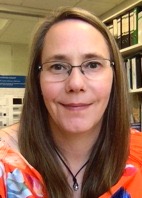
Associate Professor Victoria Lawson
Victoria (Vicki) Lawson is an Associate Professor in the Department of Microbiology and Immunology, in the School of Biomedical Sciences at The University of Melbourne where she holds a lecturing position in the discipline of Pathology and heads a research group with an interest in transmissible neurodegeneration.
Her research interest is in understanding the cause of protein misfolding in the cells of the brain and gastrointestinal tract and how this can lead to diseases such as prion and Parkinson’s disease.
Her research has identified regions of the prion protein that are essential for the protein misfolding that defines the disease and the contribution glycosylation has in this process.
She has identified evidence of disease in peripheral tissues of animals affected with prion disease and been involved in studies using new imaging paradigms to detect disease in the central nervous system, which will aid in the development of treatments. Her research was instrumental in the validation of a surgical instrument cleaning product which is now used by many hospitals in Australia to reduce the risk of prion disease transmission through surgery.
Vicki’s research group has invested in the development of medically relevant prions which are now being used to test existing and novel methods for diagnosis, treatment and prevention of disease and is investigating the normal biology of prion protein to ensure that treatments that modify the protein do not cause further harm. Our aim is to improve the lives of patients and their families affected by prion disease.

Dr Christiane Stehmann
Christiane is the coordinator of the Australian National CJD Registry, responsible for the day to day operations of the group and its interactions with clinicians and patient families.
Christiane graduated from Stuttgart-Hohenheim University, Germany (with honours in biology) and was awarded a PhD from Wagnening University, the Netherlands. Christiane then completed a post doc at University of Melbourne, worked as a Research Scientist at HortResearch in Auckland and then moved into a commercial role with Perkin Elmer managing the high throughput screening and proteomics technologies businesses. A four-year stint with Biotech start up Healthlinx as proteomics laboratory manager further rounded out her business and people skills which she now puts to effective use in her role at the ANCJDR, her most fulfilling role to date.
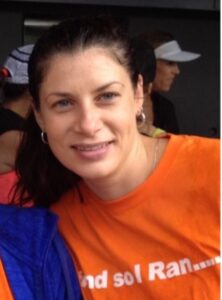
Dr Victoria Lewis
Vicki has had a keen interest in prion diseases since 2000, when she got her first job as a research assistant (RA) for the ANCJDR. As an RA Vicki ran various diagnostic tests and collaborative research projects, and it was during this time that she decided to undertake a PhD in prion research. Under the supervision of Steve Collins, Vicki Lawson and Andrew Hill, Vicki’s PhD focused on understanding the nature of infectious prion species and prion disease susceptibility. Since completing her PhD, Vicki has continued her prion research, overseas and in Australia, with interests in prion protein proteolytic cleavage, and the relevance of these events to normal prion protein function and prion diseases, presenting her research findings at various national and international conferences. Vicki has been the recipient of an NHMRC Fellowship and University of Melbourne Early Career Researcher Grant, and has been fortunate enough to receive several CJDSGN Memorial Awards/Grants. Vicki is currently a part-time Research Fellow in the Department of Medicine, (RMH) at the University of Melbourne, and has also returned to where it all started, working part-time for the ANCJDR, again involved in aspects of diagnostic testing and collaborative research. Over the couple of decades Vicki has made significant contributions to prion research, in particular to the areas of prion disease epidemiology and diagnostics, prion strain pathogenesis and prion protein proteolysis.
Vicki has been supported by the following CJDSGN awards:
In 2015 Vicki received a $20,000 ‘CJDSGN Memorial Grant in memory of Ross Glasscock, Robert Craig, Carmelo Tripoli, Arthur Schinck and Arlene Hamilton and a travel award in memory of Silva Coehlo.
In 2016 Vicki received a $25,000 CJDSGN Grant ‘CJDSGN Memorial Grant in memory of: Sandra Kernahan, Stephen (Jake) O’Hara, Catherine Heagerty, Grasso family, Victoria Larielle, Barbara Childerhouse, Marilyn Hart and Pamela Thomas (City2Sea)’.
In 2018 Vicki was awarded a $50,000 ‘CJDSGN Memorial Grant (City2Sea 2016 2017) in memory of Stephen (Jake) O’Hara (Team Jake) Jennifer Duckworth (Team Jenny) and others lost to CJD’
In 2018 Vicki was also awarded a $42,000 ‘CJDSGN Memorial Award in Memory of Michael Luscombe’
In 2019 Vicki was awarded a $55,000 ‘CJDSGN Memorial Grant in Memory of Frank Burton’.
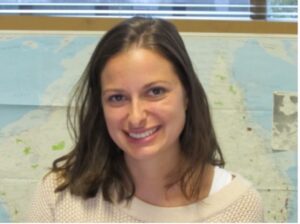
Shannon Sarros
Shannon graduation from the University of Melbourne with a Bachelor of Science (Honours) in 2011 and in 2013 began working as a research assistant (RA) for the Australian National CJD Registry. Shannon’s role within the ANCJDR has evolved over the years where she started with the routine diagnostic testing and in 2016, she was awarded a CJDSGN Special Travel Award to visit the National CJD Research and Surveillance Unit in Edinburgh for training in the RT-QuIC test for establishment in Australia.
Today Shannon’s position involves the management of the NATA accreditation for the laboratory as well as assisting the coordinator with the day-to-day operations of the group including reporting and clinician interactions.

Associate Professor Qiao-Xin Li
Principal Research Fellow, National Dementia Diagnostics Laboratory (NDDL), The Florey, The University of Melbourne, Australia
A/Prof Qiao-Xin Li has a long standing record of research, especially in biomarker testing for Alzheimer’s disease (AD) and related disorders, and is nationally and internationally recognised, with >150 publications. This has advanced the understanding of AD and other neurodegenerative diseases and neuropsychiatric disorders through the study of molecular biomarkers in patient samples and animal models. This is now translating into clinical practice through the development of biomarker-based diagnostic and precision medicine theragnostic tests for early dementia and psychosis.
Together with Directors Professor Colin Masters and Professor Steven Collins, we have established the NATA-accredited National Dementia Diagnostics Laboratory (NDDL) to support clinical trials, routine practice, and commercial collaborations.


